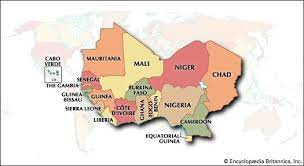Benin and Togo emerged as the most affected areas, with a 18% rise in violent incidents compared to the previous period. Northern Benin, in particular, experienced heightened insecurity, with kidnappings and attacks on civilians becoming more frequent. The region suffered 15 security incidents in just two months, resulting in the deaths of 19 soldiers and security agents.
While Togo has seen an uptick in violent clashes between security forces and non-state armed groups in the Savanes region, Ghana and Côte d’Ivoire reported relatively more stable situations. Ghana experienced a single community clash that resulted in three deaths, and Côte d’Ivoire remained largely unaffected by major security incidents.
The humanitarian crisis in the region has also escalated, with the number of refugees and asylum seekers increasing by 5% between May and July 2024. Côte d’Ivoire remains the primary destination for refugees, welcoming over 4,500 new arrivals during this period.
To address these challenges, international organizations and governments have provided financial assistance and support to affected countries. Togo, for example, received a $298 million loan from the World Bank to improve public services and strengthen social cohesion in the north. Additionally, the African Development Bank and USAID have allocated funds for agricultural development, youth and women empowerment, and emergency food assistance.
The security crisis has also exacerbated gender-based violence, particularly in Benin and Ghana. Women and girls are facing increased risks of physical assault, forced marriage, and precarious living conditions. While humanitarian initiatives are underway, limited resources and coordination hinder effective responses.

